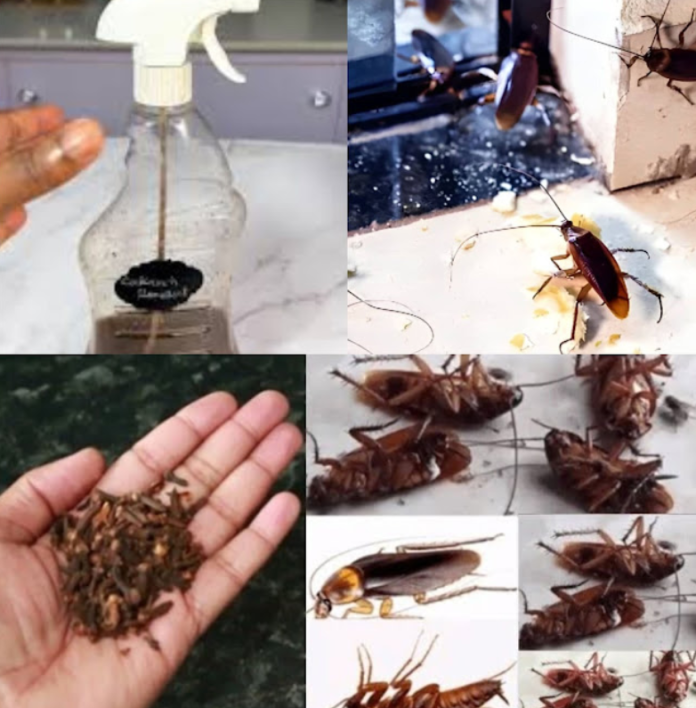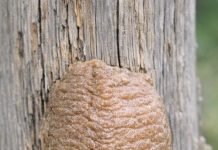Cockroaches are one of the most persistent pests that can invade your home, causing not only a nuisance but also potential health hazards. While chemical insecticides are a common go-to solution, they come with their own set of risks and drawbacks. For those seeking a natural and safe alternative, cloves—a fragrant spice commonly found in kitchens—offer an effective remedy. This article explores how cloves can be a game-changer in your battle against cockroaches, providing a safe, non-toxic way to keep these unwelcome guests at bay.
Why Cloves Work Against Cockroaches
Cloves contain eugenol, a compound known for its potent insecticidal properties. This natural ingredient disrupts the pheromone communication of cockroaches, making it difficult for them to navigate and survive in treated areas. The strong aroma of cloves is unbearable for cockroaches, effectively driving them away without the use of harsh chemicals. This makes cloves an ideal solution for those who prefer a more eco-friendly and health-conscious approach to pest control.
Preparing and Using Clove-Based Solutions
Clove Oil Spray
One of the simplest and most effective ways to use cloves against cockroaches is to create a clove oil spray. Here’s how:
- Ingredients:
- 1 quart of water
- 1 teaspoon of clove oil
- Instructions:
- Combine the water and clove oil in a spray bottle.
- Shake vigorously to ensure the oil is well-dispersed.
- Spray the mixture in areas where cockroaches are likely to hide, such as cracks, crevices, and behind appliances.
The powerful scent of the clove oil will repel cockroaches, making your home less inviting for these pests.
Whole Cloves
Another effective method is to use whole cloves:
- Sachet Method:
- Place whole cloves in small sachets or breathable bags.
- Distribute these sachets in nooks and crannies, under sinks, and around doorways.
- Loose Distribution:
- Simply scatter whole cloves in problem areas where cockroaches are frequently spotted.
The lingering aroma of whole cloves will act as a continuous deterrent, keeping cockroaches away. Remember to replace the cloves every month or two, as their scent will fade over time.
Clove Powder
For more severe infestations, clove powder can be highly effective:
- Application:
- Sprinkle clove powder around potential entry points and hiding places, such as under the stove, refrigerator, and inside cupboards.
- The fine powder can penetrate small cracks and crevices where cockroaches tend to hide.
Additional Tips for Effective Cockroach Control
While cloves can be a powerful tool in your pest control arsenal, maintaining a clean and hygienic home environment is crucial:
- Regular Cleaning: Ensure that your home is consistently clean. Cockroaches thrive in dirty, cluttered environments where they can easily find food and water.
- Food Storage: Store food in sealed containers and dispose of trash regularly to eliminate potential food sources for cockroaches.
- Seal Entry Points: Inspect your home for any cracks or gaps and seal them. This reduces the number of entry points for cockroaches and minimizes their hiding places.
Safety Precautions
While cloves are a natural remedy, it’s important to handle them with care:
- Clove Oil: Pure clove oil can be irritating to the skin and eyes. Always wear gloves when handling clove oil and avoid touching your face.
- General Handling: Keep clove products out of reach of children and pets to prevent accidental ingestion or contact.
Conclusion :
By following these simple yet effective methods, you can harness the power of cloves to maintain a cockroach-free home. This natural remedy not only provides a healthier living space but also ensures that you avoid the risks associated with chemical insecticides. Give it a try and discover how cloves can become your go-to solution for a cleaner, more comfortable home environment. Embrace the natural magic of cloves and enjoy a pest-free life!
Source of the picture : Barbara O’Neill Lectures










